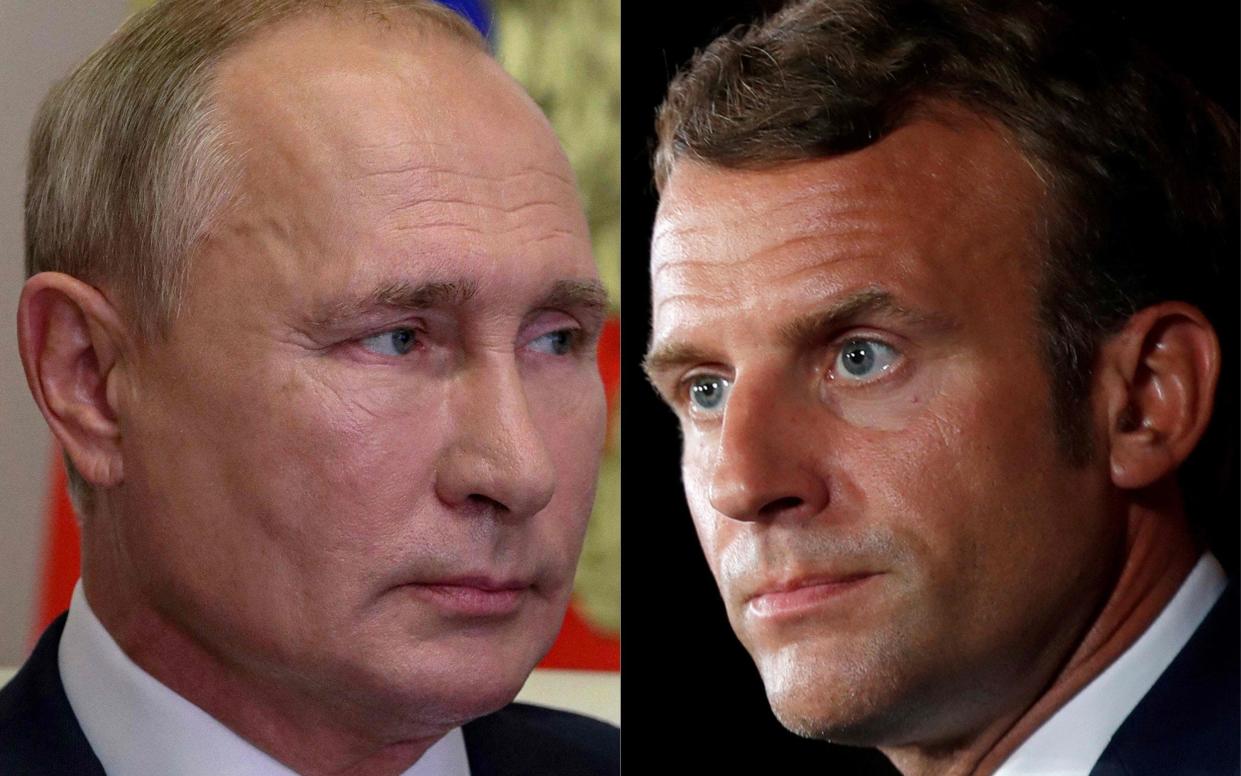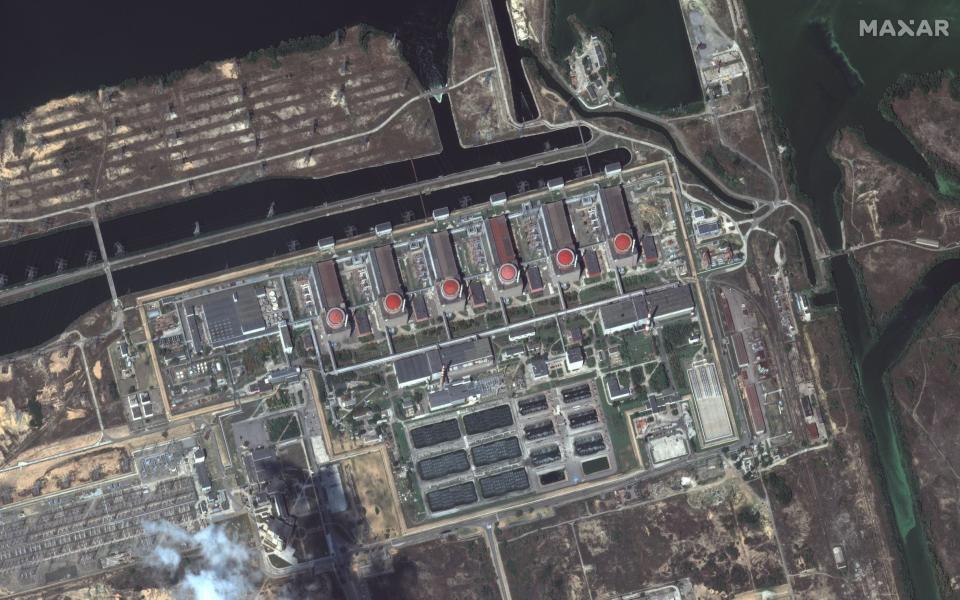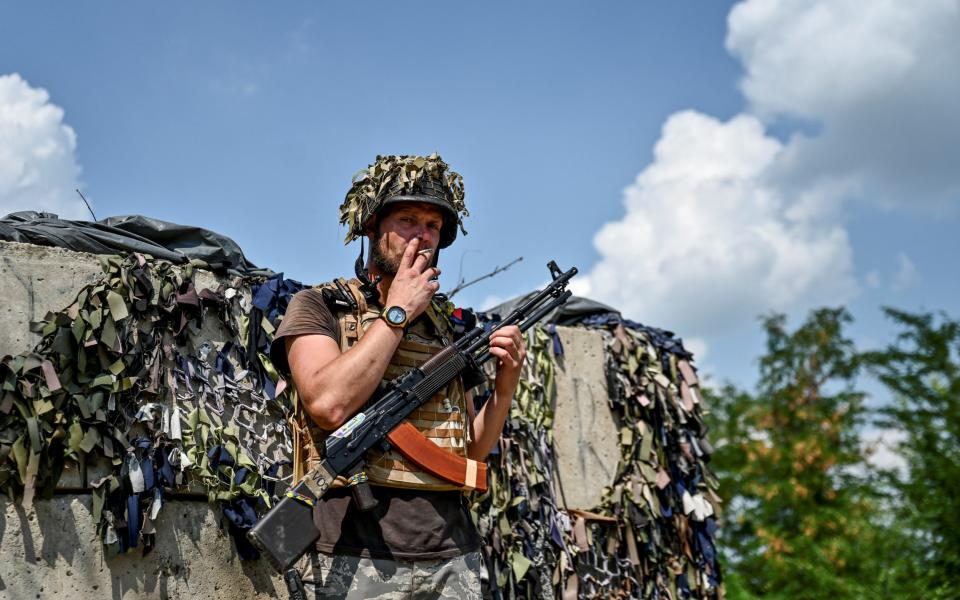Emmanuel Macron’s call with Vladimir Putin aimed at ‘averting nuclear disaster’

- Oops!Something went wrong.Please try again later.
- Oops!Something went wrong.Please try again later.
French President Emmanuel Macron was on Friday night forced to justify his latest phone call with Vladimir Putin, claiming he was trying to avert a disaster at the Zaporizhzhia nuclear power plant.
After months of diplomatic silence between the pair, the French leader’s officials claimed talks were resumed because of safety concerns over Europe’s largest nuclear power plant.
An Elysee Palace official said: “This call from the President of the Republic to Vladimir Putin was justified as a result of all the steps that the President has taken on the issue of nuclear safety since March and the entry of Russian forces into the Zaporizhzhia region, but also the risk that weighted on Chernobyl.”
In their call, the Russian president blamed shelling by Ukraine’s armed forces for the heightened risk of a “large-scale catastrophe” by the fighting around the facility.
Ukraine has warned that the Kremlin could be planning a false-flag attack on the facility, in the south-eastern city of Enerhodar, in order to put blame on Kyiv for any disaster.
The Zaporizhzhia plant has since become the focus of international diplomatic efforts in a bid to ease the simmering tensions and avert a crisis.
The pair agreed independent inspectors should be dispatched to monitor the safety situation at the plant.
Mr Macron, who last called his Russian counterpart in May, has been heavily criticised for his unsuccessful diplomatic efforts to prevent or end the conflict in Ukraine.
The French president sought to position himself as Europe’s interlocutor with the Kremlin despot but has been accused of appeasing the Russian leader.
Russia was said to be seeking to divert electricity provided by the Zaporizhzhia plant from the Ukrainian grid as “hybrid warfare” in an attempt to force Kyiv to surrender.
Since Russian forces captured the plant in March, its Ukrainian workers have been allegedly forced to keep the facility operating at gunpoint.


Elsewhere, the war in Ukraine was said to have reached a “moment of near operational standstill”.
It was also claimed that Western officials have a “large range of evidence” to suggest Russia had started to “run out of ammunition”.
In its daily update, the Institute for the Study of War, a US-based think-tank, said Russia had failed to make any territorial gains on Thursday, the first time since July 6.
After at least 17 people were killed and 42 injured in two Russian attacks earlier this week in Kharkiv, Ukraine’s second city, Britain’s Ministry of Defence warned Moscow was bombarding the area to tie up Kyiv’s armed forces.
“Sitting around 15 km from the Russian front line, Kharkiv has suffered because it remains within range of most types of Russian artillery,” the MoD said on Friday in its daily intelligence update.
“They are probably trying to force Ukraine to maintain significant forces on this front, to prevent them from being employed as a counter-attack force elsewhere.”

